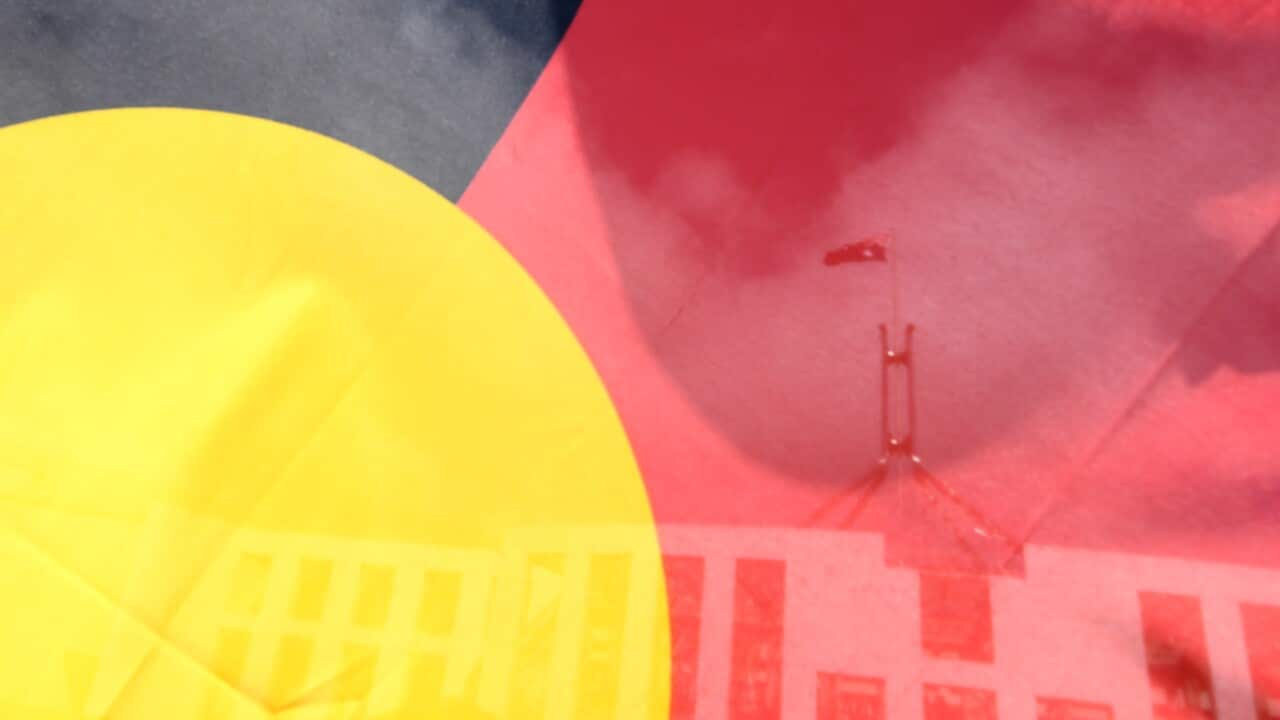Key Points
- The Australian government is has been criticised for continuing to celebrate Harmony Day on March 21, instead of The UN International Day for the Elimination of Racial Discrimination.
- Critics argue that Australia's failure to commit to the purpose of the UN day has hindered the country's efforts to understand, fund, and develop research into problems stemming from systemic racism.
- SBS understands that the Minister for Immigration, Citizenship and Multicultural Affairs will ditch Harmony Day and instead celebrate Harmony Week.
For almost a quarter of a century, the Australian government has encouraged workplaces and schools to ‘wear orange’ on March 21, a day labelled ‘Harmony Day’, which kicks off a week to praise the benefits of multiculturalism through morning teas across the country.
“Harmony Week is the celebration that recognises our diversity and brings together Australians from all different backgrounds,” the Department of Home Affairs .
People are invited to share a plate of food (or recipe) representative of their ethnic or cultural background. The aim is to foster social cohesion through positive cross-cultural conversations amongst work colleagues and schoolchildren.

Students at Campbelltown Public School celebrate Harmony Day Credit: @MissD_Inspire
The date opens “a week of solidarity with the peoples struggling against racism and racial discrimination”.
Why ‘Harmony Day’ and not ‘End Racism Day’?
Harmony Day was introduced in 1999 by then Liberal Prime Minister John Howard, following the 1998 government-commissioned Eureka Report, which revealed significant levels of racism and intolerance in Australia.
“They consulted a series of groups and ensured they had input from people of different ethnicities and spoke languages other than English,” Emeritus Professor of Sociology at University of Technology Sydney Andrew Jakubowicz explains.
“They grouped people by ‘attitude’, from people who were ‘pro-diversity and anti-racist’, to people who were highly prejudiced … The results were very powerful.”
The research showed that those who were ‘pro-diversity’ were more likely to recognise and call out racism, while those with negative values were generally "unable to recognise racism" and would "rebuff any attempt to describe their values or attitudes as racist," says Prof Jakubowicz, who obtained the Eureka Report under FOI.
The strategic study also found that celebrating the benefits of inclusion was more palatable.
“They explored if there was a single idea that might allow a campaign that would run not just for the people who were already ‘on-side’ … but also reach to some extent into that group that was very hostile towards these ideas … The only value they found more than 50 per cent of our population accepting was that of a harmonious society”.

Credit: Nick Youngson - link to - http://nyphotographic.com/
Language matters
Prof Jakubowicz believes the re-branding of ‘end racism day’ into ‘Harmony Day’ has been detrimental, as Australia has avoided developing institutional research into racism and discrimination, and failed to hold societal conversations to combat these.
We’ve lost a generation of capacity to engage with racism and do something about it in a systematic and serious way.Andrew Jakubowicz, Emeritus Professor of Sociology at University of Technology Sydney

Harmony Day celebrations have been held in schools and workplaces across Australia on March 21 for around two decades. Although Harmony Day was introduced in 1999, some states did not adopt it until years later. Credit: Abul Kalam Azad
Gamilaraay educator Luke Pearson, founder and CEO of agrees. He believes Australia has “poor literacy when it comes to understanding and talking about issues of race and racism”.
“We’re celebrating the way we live in a ‘harmonious society without racism’ … instead of committing ourselves to the UN [goal of actively] eliminating racial discrimination,” he argues.
Racism is rife in this country, and it won’t just go away by not talking about it.Luke Pearson, IndigenousX CEO
He suggests speaking out against racism on Harmony Day is a more meaningful way for Australians to “elevate the conversation” and “tap back into the global [push to] eliminate racial discrimination”.
This year, the government conceded "there is still much more work to do" to combat racism.
In his 2023 Harmony Week message, Minister for Immigration, Citizenship And Multicultural Affairs, Andrew Giles says:
"We're increasingly not afraid of having difficult conversations about our past, present and future, of questioning our ways and acknowledging our mistakes, and finding new ways to live better, in harmony."
SBS understands the Minister for Immigration, Citizenship and Multicultural Affairs, part of the Department of Home Affairs, will not be celebrating March 21 as Harmony Day this year, opting instead to recognise it as The International Day for the Elimination of Racial Discrimination. It will also hold Harmony Week celebrations in tandem.
A Department of Home Affairs spokesperson told SBS in a statement it will promote "Harmony Week 2023, including the International Day for the Elimination of Racial Discrimination (21 March)".
Perceptions towards multiculturalism vs the experience of racism
The has been studying social cohesion in Australia for 15 years.
Scanlon Foundation CEO Anthea Hancocks says Australia’s “positive view of multiculturalism has stayed high since the start of the survey in 2007” and is getting “stronger”.
In 2021, their found about 86 per cent of respondents believed immigrants are good for Australia’s economy, a 10 per cent increase from 2019. In the 2022 survey, almost nine out of 10 respondents agreed.

The proportion of people who agreed “accepting immigrants from many different countries makes Australia stronger” surged to 78 per cent in the Scanlon Foundation's 2022 survey, from 63 per cent in 2018. Source: Getty / Getty Images
Although the Black Lives Matter movement increased awareness of racism in Australia, it didn't account for the surge.
In 2020, Australian intelligence services (ASIO) warned .
Worryingly, the 2022 Scanlon survey showed Australia's sense of national belonging and pride was at its lowest point in 16 years, as 52 per cent of respondents said they felt a ‘great sense of belonging in Australia’.
Although The Scanlon Foundation endorses Harmony Week, Ms Hancocks laments its reach and impact are limited to specific cohorts.
"The problem with Harmony Day is that is now seen as something that the ‘multicultural community does’, and not something 'for the entire community'".
However, she believes it’s just one of the many avenues to tackle racism in Australia.




